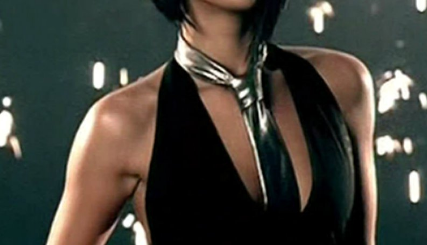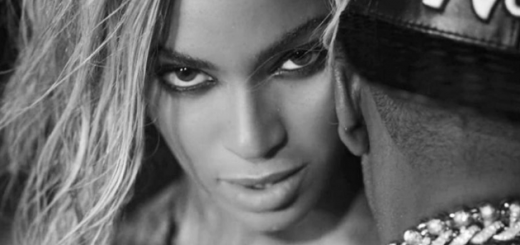D.O.A. (Death of Auto-Tune) by Jay-Z Lyrics Meaning – The Anthem for Authentic Hip-Hop Resurgence
Lyrics
No ID on the track let the story begin…
Begin… begin
This is anti-AutoTune, death of the ringtone
This is Sinatra at the opera, bring a blonde
Preferably with a fat ass who can sing a song
Wrong, this ain’t politically correct
This might offend my political connects
My raps don’t have melodies
This shit make niggas wanna go and commit felonies
Ah, get your chain tooken
I may do it myself, I’m so Brooklyn
I know we facin’ a recession
But the music y’all makin’ gon’ make it the great depression
Ah, or your lack of aggression
Pull your skirt back down, grow a set men
Ah, ah… nigga this shit violent
This is death of AutoTune, ah moment of silence
La da da da… hey hey hey goodbye
Only rapper to rewrite history without a pen
No ID on the track let the story begin…
Begin… begin
Hold up, this ain’t a number one record
This is practically assault with a deadly weapon
I made this just for Flex and Mr. C
I want niggas to feel threatened
Stop your blood clot crying
The kid, the dog, everybody dying
No lyin’, your niggas’ jeans too tight
Your colors too bright, your voice too light
I might wear black four years straight
I might bring back Versace shades
This ain’t for Z100
Ye told me to kill y’all to keep it 100
This is for Hot 9-7
The shit for clue for Khaled, for we the best and
Nigga this shit violent
This is death of AutoTune, moment of silence…
La da da da… hey hey hey goodbye
Only rapper to rewrite history without a pen
No ID on the track let the story begin…
Begin… begin
Hold up, this shit need a verse from Jeezy… ay!
I might send this to the mixtape Weezy
Get somebody from BMF to talk on this
Give this to a Blood, let a Crip walk on it
Get me Pharrell to style on this
I just don’t need nobody to smile on this
Y’all niggas singin’ too much
Get back to rap, you T-Pain’n too much
Ah, I’m a multi-millionaire
So how is it I’m still the hardest nigga here?
I don’t be in the project hallway
Talkin’ ’bout how I be in the project all day
That sounds stupid to me
If you a gangsta, this is how you prove it to me
Nigga, just get violent
This is death of AutoTune, moment of silence
La da da da… hey hey hey goodbye
Only rapper to rewrite history without a pen
No ID on the track let the story begin…
Begin… begin
In a landscape of synthesized vocals and formulaic hooks, Shawn Carter, better known as Jay-Z, dropped a bombshell on the music industry with ‘D.O.A. (Death of Auto-Tune)’, a ferocious clarion call that not only challenged but outright condemned the pervasive use of vocal pitch correction software in hip-hop. This track is not only a song but a bold declaration of Jay-Z’s unwavering commitment to the core tenets of hip-hop: authenticity, lyrical prowess, and unfiltered storytelling.
But ‘D.O.A.’ is more than just an indictment of Auto-Tune; it is a nuanced exploration of hip-hop’s soul, a tug-of-war between an evolving genre often seduced by commercial appeal and the grounded principles of street-poetry and truth-telling that gave birth to it. It’s an examination worthy of dissection, with layers that unveil the state of music, culture, and even politics.
Reviving the Raw Realism of Rap
In a world where chart-topping hits often prioritize beat over substance, ‘D.O.A. (Death of Auto-Tune)’ stands as a testament to the gritty, unpolished truth that once defined the spirit of rap. Jay Z juxtaposes his rugged, melody-free flow with the polished, melodic productions that dominated the airwaves, declaring the latter as not just artistically weak, but as an omen for a broader cultural recession.
‘No ID on the track let the story begin…’ is more than an opener—it’s an invitation to strip away the artificiality and herald the genesis of stories with depth, backbone, and the raw acoustics of traditional hip-hop beats. The song is a wake-up call that revitalizes what the heart of rap always has been—poetry in motion, free from the tethers of digital perfection.
An Artiste’s Manifesto Against Conformity
Jay-Z positions himself in ‘D.O.A.’ not merely as a rapper but also as a legendary figure akin to Frank Sinatra—an icon of true artistry who refuses to conform to the whims of popular taste. The reference is powerful: Sinatra represented the pinnacle of raw, unaffected talent and timeless class that stands in stark contrast to what this song implies is the ephemeral, shallow nature of a ringtone-driven music industry.
‘This is Sinatra at the opera, bring a blonde,’ illustrates not just a random counterpart but a strategically chosen symbol—an insurgence of classic taste against fleeting fads. This juxtaposition serves as a catalyst for listeners to reflect on the dilution of musical artistry in favor of trends, and to ponder the responsibility artists bear in shaping the cultural narrative.
Analyzing the Socioeconomic Commentary
‘But the music y’all makin’ gon’ make it the great depression,’ is not just a metaphor about declining music quality but taps into a larger, more ominous socioeconomic commentary. Jay-Z acknowledges the ongoing recession, drawing parallels between economic downfall and what he perceives as the decline of hip-hop’s artistic integrity, indicting the latter as a symptom, or even a cause, of societal malaise.
The track amplifies the idea that music, particularly hip-hop, has long been a pulse-check on society’s wellness. To Jay-Z, the over-reliance on Auto-Tune is symptomatic of a greater societal problem—a lack of substance from which further personal and communal dysfunction may ensue. The line becomes a political rallying cry, urging creatives to take up their social responsibility and restore cultural vitality.
Decoding the Hidden Rebellion
Digging deeper into ‘D.O.A.’, one uncovers a revolutionary undercurrent—an implicit rebellion not only against genre norms but against the muzzle of political correctness. ‘This ain’t politically correct / This might offend my political connects’ is an artist’s subtle acknowledgment of the constant pressure to censor oneself in the public eye, especially for a figure like Jay-Z who transcends the boundaries of music into the realms of entrepreneurship and activism.
Choosing authenticity over safety, Jay-Z risks offending the establishment to maintain his artistic integrity. By doing so, he raises questions about the extent to which artists should compromise for commercial success and public image, spotlighting the tension between creative expression and the commercial constraints imposed by the industry and society.
‘Goodbye’ to an Era of Overrides
The repetitive and almost mocking farewell, ‘La da da da… hey hey hey goodbye,’ is not just a catchy hook but seals the deal on Jay’s intended obituary for Auto-Tune. It’s not merely a sonic effect he’s attempting to bury, but an entire culture of overproduction that overrides authentic human error and genuineness for a polished product devoid of heart.
By bidding adieu, Jay-Z does not promise an immediate shift but instigates a much-needed conversation about the return to realness. It’s an exclamation point following a powerful statement: that true art comes from the soul, not a computer algorithm, and that as long as moguls like him stand guard, hip-hop’s essence will never die—it will simply evolve.








